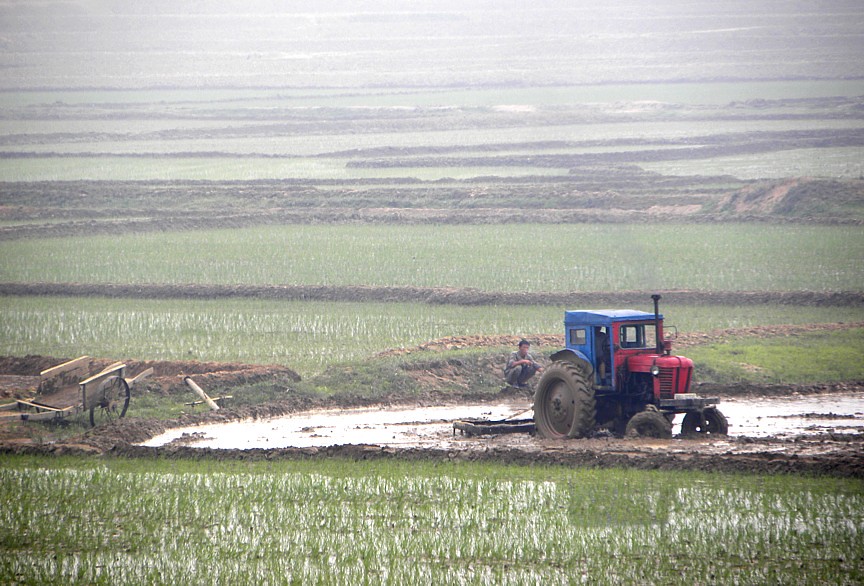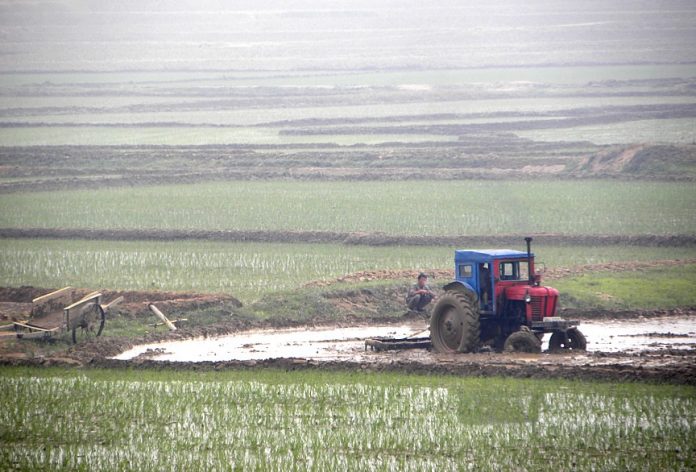North Korean grain prices are climbing again after a brief lull earlier this month, according to market data.
Rice sold for 9,500 North Korean won per kilogram at a Pyongyang market on April 27, up 4.4% from 9,100 won recorded two weeks earlier, Daily NK found in its regular survey of North Korean market prices.
Similar increases were observed in other regions. In Hyesan, Ryanggang province, rice prices rose 4.3% to 9,700 won per kilogram compared to 9,300 won two weeks ago.
Market rice prices had hit record highs in late March — 9,500 won in Pyongyang and Sinuiju, North Pyongan province, and 9,700 won in Hyesan — before dropping about 4% in early-to-mid April around the celebration of North Korea’s biggest holiday, Kim Il Sung’s birthday. Prices have since rebounded to near-record levels.
Corn prices, a staple for lower-income North Koreans, also increased across the board. Corn sold for 4,300 won per kilogram in Pyongyang on April 27, up 4.9% from 4,100 won in the previous survey.
In Hyesan, corn prices rose 6.1% over two weeks to 4,510 won per kilogram — the first time corn has exceeded 4,500 won since Daily NK began tracking North Korean market prices in 2009.
Grain prices are expected to continue rising until the harvest of alternative crops like wheat and barley. However, the rate of increase may vary depending on how much imported grain reaches the markets.
Meanwhile, foreign exchange rates showed mixed trends. The North Korean won-to-dollar exchange rate rose 2.3% to 22,000 won in Pyongyang compared to the April 13 survey, with similar increases in Sinuiju and Hyesan. Conversely, the won-to-yuan exchange rate fell about 3% across regions, dropping to 3,120 won in both Sinuiju and Hyesan.
Fuel prices also increased noticeably, with diesel showing the sharpest rise. Diesel traded at 21,600 won per kilogram in Pyongyang, surging 13.1% over two weeks. In Hyesan, diesel reached a record high of 21,800 won per kilogram. The spike in diesel prices likely reflects increased demand as spring farming season intensifies.
Other imported food items, including cooking oil, sugar and flour, also saw significant price increases. Flour prices rose most dramatically, jumping 14.3% to 11,200 won per kilogram in Pyongyang compared to two weeks earlier.
While flour prices had previously declined despite rising import costs last year due to continued imports from Russia, the recent surge suggests a decrease in import volume.

